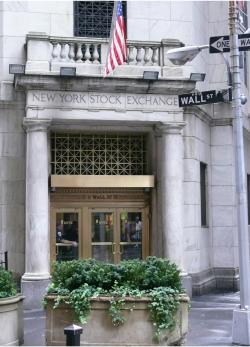Dissecting the Flawed Dissin of No Delisting…of Chinese Companies

The United States (US) Public Companies Accounting Oversight Board (PCAOB), part of the Securities and Exchange Commission, has a variety of duties, one of which is to “inspect registered public accounting firms’ audits and quality control systems.” It had been unable to do this, however, in the case of many US-listed Chinese companies because Beijing would not permit any accounting firms to share Chinese audits. This was highly problematic because the 2020 Holding Foreign Companies Accountable Act (HFCAA) required bans on the trading of non-compliant firms’ securities, which, in turn, meant delisting from stock exchanges such as the New York Stock Exchange and the disclosure of information about People’s Republic of China (PRC) government/Chinese Communist Party (CCP) ownership, control, and board involvement in non-compliant firms. Indeed, more than 150 Chinese companies, including marquee firms such as Alibaba, Baidu, and JD.com, faced the threat of delisting as early as 2024, with some, particularly state-owned enterprises (SOEs) such as PetroChina and Sinopec, opting to leave US exchanges rather than fulfill US audit inspection requirements.
Despite the allure of US capital markets, there was much distrust Beijing would comply with PCAOB requirements. After all, China is notoriously sensitive about anything that smacks of the “extraterritorial” application of law as well as anything that might require the disclosure of so-called “state secrets” and the CCP is hardly known for its transparency. Yet in late August 2022, the PCAOB and the China Securities Regulatory Commission (CSRC) and Ministry of Finance signed agreement granting the PCAOB, among other things, the right to select the entities it inspects and investigates, full access to complete audit work papers, and full interview rights to individuals associated with audits. Nonetheless, doubts still remained given PCAOB reviewers had to travel to Hong Kong during a time of still-present, albeit waning, Covid restrictions, the possible presence of PRC government officials or CCP members during PCAOB interviews with audit personnel, the fluid nature of state secrets, different Chinese company financial reporting practices, and the above noted reasons.
On December 15, 2022, the PCAOB released a statement touting that it received “complete access to inspect and investigate audit firms in the People’s Republic of China (PRC) for the first time in history.” It opined China had filled fully the terms of the August 2022 agreement and, of note, that it was able to look at audits pertaining to SOEs as well as companies in “sensitive industries.” PCAOB staff did identify audit deficiencies, but labeled them as “consistent with the types and number of findings the PCAOB has encountered in other first-time inspections around the world.” The successful visit meant that threat of securities trade bans and exchange delistings had ended, potentially “game changing” for investors interested in Chinese stocks. This said, the PCAOB’s glowing statement did not represent a “clean bill of health” for the deficient auditors or audited companies, all non-reviewed public accounting firms, and/or all non-reviewed companies. Deficiencies have to be corrected; many audit firms and companies still have to be inspected; and PCAOB staff still have to be allowed into mainland China.
Despite all these uncertainties, there clearly have been positive developments that require explanation. One possibility is the aforementioned attractiveness of US capital markets. While plausible, this seems an insufficient explanation given the availability of numerous alternatives in places like Hong Kong, Germany, the United Kingdom, Switzerland, and, of course, the Chinese mainland. A second might be Beijing’s interest in stabilizing the US-China relationship in an economic area seemingly more amenable to cooperation as well as its need to reboot China’s troubled economy. A third might be the desire to remove a distraction, albeit a minor one, from dealing with China’s domestic woes as symbolized by the late November/early December “White Paper” protests. If relevant, though, this most likely sheds light on the lack of interference with the PCAOB visit to Hong Kong than anything else. A fourth might be Hong Kong’s desire to continue to portray itself as an international financial center. Yet Hong Kong’s weight in Beijing’s decision-making calculus is not significant so this is, at best, only a partial explanation. A fifth, more cynical, take, would be that China complied with the August agreement because it did not comply. Put differently, it somehow found ways to prevent the disclosure of the state secrets that it historically has been so reluctant to share and thus was willing to let PCAOB staff do their work.
In late December 2022, the CSRC lauded the successful PCAOB visit and “vowed…to establish a regularized mechanism for cooperation in audit supervision between China and the US.” Should we expect a clean bill of health going forward? It will depend how much Chinese firms continue to need US capital markets, the attractiveness of alternatives (something Chinese financial experts continuing urging Chinese firms to consider), the state of US-China relations, the domestic economic and political situation in China, and the goals and sensitivities of top Chinese leaders. In short, “past performance is no guarantee of future results” as the investment community is accustomed to disclosing.
*The information used herein is gathered from sources believed to be reliable, but the Wong MNC Center does not guarantee their accuracy. The content in this section does not necessarily represent the official view of the Wong MNC Center, its Board of Directors, or its Advisory Board.




